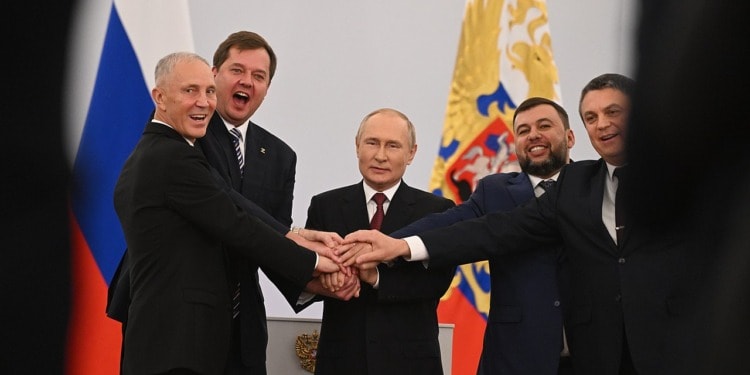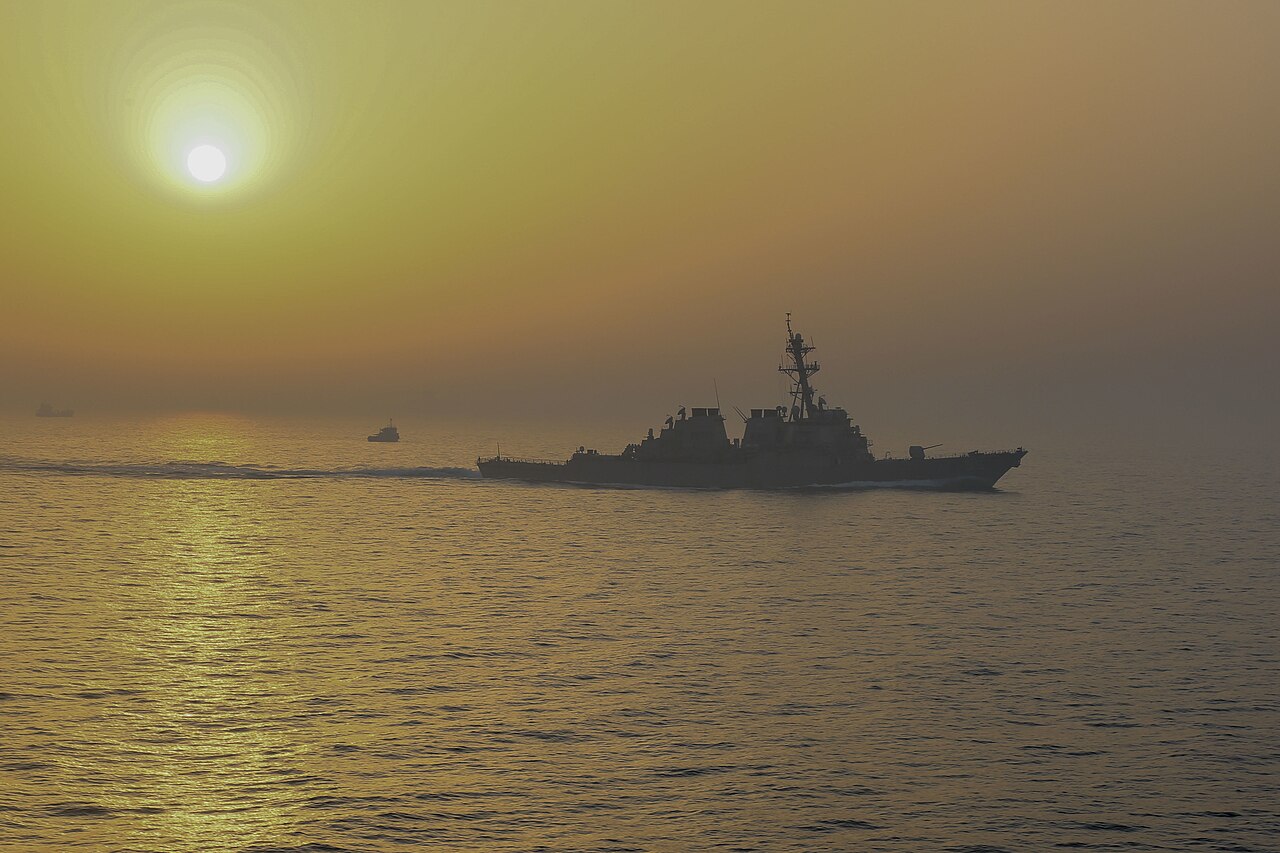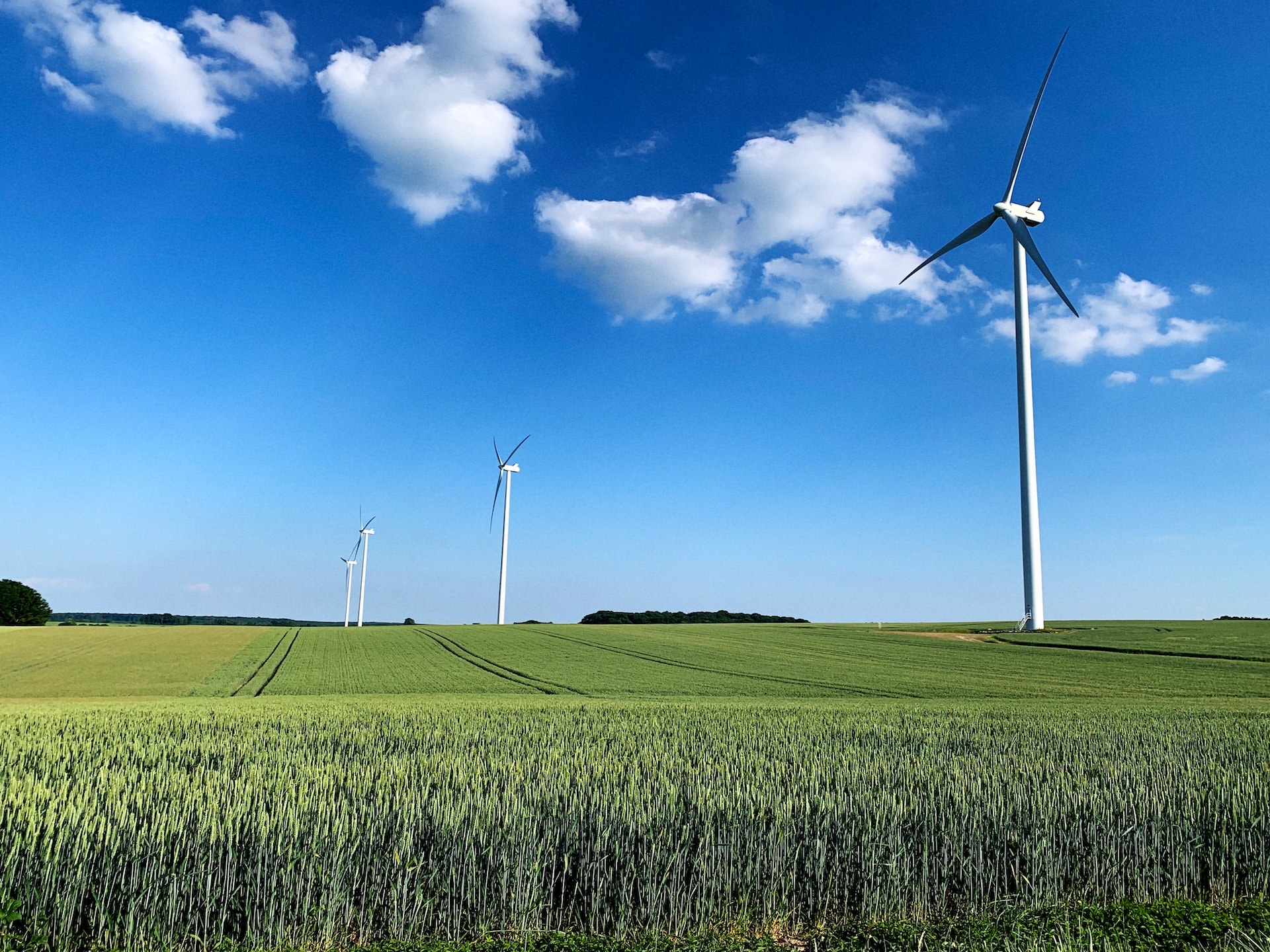Updated Nov. 18, 2022. As we all know, ridicule doesn’t kill anybody – because if it did, Putin would be dead by now.
Consider what has happened to him recently: Just over a month ago, he was strutting in Moscow, leading a ridiculously lavish ceremony of “welcome” into the Russian Federation for four new regions, illegally annexed from Ukraine: Luhansk and Donetsk in the east, and in Kherson and Zaporizhzhia in the south.
Putin proclaimed Kherson as one of the four “new and eternal” capital cities of the Russian Federation.
A “new” capital city certainly – “eternal”, not so much.
Last week, Ukraine President Zelensky showed up in Kherson, the capital of one of the four regions, now reclaimed by Ukrainian forces that have been carrying on since late summer a remarkable counter-offensive, winning back ever larger swathes of Ukraine, thanks primarily to the heroism of Ukrainian soldiers and the local population.
No doubt continuing military and economic support from the West played its role, making all this possible, but without Ukraine’s own unswerving and often heroic commitment, nothing would have happened and Russia would have won.
Zelensky walked in the devastated streets of Kherson, opened up his arms and gathered the liberated people’s gratitude and enthusiasm, promising them (yet again!) that the struggle against the Russian invader won’t stop until total victory is achieved and peace is restored.
That’s something Putin would never have done; in fact, you never see him anywhere, walking the streets, waving at people, shaking their hands, kissing children. Not his style. He likes to remain the big “tzar” hidden behind the tall Kremlin walls, far away from the people.
Or maybe Putin’s main concern is to be “safe” from the people? Because right now he’s in deep trouble at home: Even his main friend and supporter, Alexander Dugin, the man who dreamt up “Eurasianism”, the deadly ideology driving Putin, has turned against him.
Dugin deprecatingly dubbed Putin a “false tsar” for ordering the Russian retreat from Kherson and more generally, the whole failure of the war in Ukraine.
Now, in the Russian tradition, calling somebody a “false tsar” is a serious matter, it’s a label that stigmatizes the person, and the expectation is – at least historically – that he should pay with his life for his inability to lead the nation to victory.
Later, Dugan backtracked but the damage was done. The false tsar was seen as a loser, covered in ridicule.
Perhaps Putin should have seen it coming: Dugin’s personal attack on Putin probably had emotional roots. He soured up on Putin ever since his daughter – a TV commentator on the far-right, faithfully echoing her father’s Euroasianic views – was murdered near his home this summer in an assassination attempt in which he was the target. After all, she was killed in that part of Moscow, filled with the dachas of the ultra-rich, where street safety is supposed to be guaranteed by Putin’s government.
But Putin’s problems are not with Dugin alone. All the ultra-right in Russia is up in arms against him, notably Yevgeny Prigozhin head of the infamous Wagner group of mercenaries.
The Wagner group, created in 2014 and essentially acting as the Kremlin’s private army, is notorious for leaving a trail of murderous violence, ruthlessly raping and killing civilians, not just in Ukraine but wherever they go, before in Syria and now in Africa, in Sudan, Libya, Mozambique, Mali and the Central African Republic.
Interestingly, Prigozhin, a businessman with close links to Putin spent years denying his links to the Wagner group. And he only recently admitted, in September 2022, that he was the founder the paramilitary group.
Coming out in the open at this moment no doubt coincides with his desire to influence Putin and push him into a corner in Ukraine, demanding full-out war – as well as with a need to prop up his mercenaries whose morale is flagging in the face of repeated defeats in Ukraine.
Good luck with that.
So what are Putin’s options?
The retreat from Kherson cannot be reversed no matter what the extreme right demands. Some 300,000 new military recruits are now lined up to fight in Ukraine but they can’t go overnight, they need training. And that takes time. They won’t be ready before the spring.
So, once again, winter is coming to help Russia – a season that has helped Russia so many times in the past, famously starting with Napoleon’s campaign and more recently with the Germans in World War II. Now, as the cold weather, sleet and mud make troop movements difficult, there will be time for Putin to get the recruits fully trained, and ready for battle.
Expect a big Russian counter-offensive in the spring.
Will the Russian extremists wait for spring or will they try a coup against Putin, causing total havoc in the Kremlin?
Anti-Putin Russians are betting they won’t wait and that Putin’s days in the Kremlin are numbered. On November 6, a substantial group of former anti-Putin Russian politicians gathered in Jablonne near Warsaw in a conference to work out a strategy once Putin is unseated.
If you think that looks like an incredible, far-out move, the Kyiv Post reported on November 9 the surprising results of that conference:
On Nov. 4-7, a new “Parallel Parliament” for Russia was formed at the “First Congress of People’s Deputies of Russia” in Warsaw. The delegates set themselves the ambitious goal of laying the foundations for a free post-Putin Russia.
The Kyiv Post made the point that all those who attended this event were currently in exile, people “not tainted by any form of collaboration with Putin’s dictatorship; are not complicit in the Kremlin’s crimes; and have rejected Russia’s war against Ukraine since it began in 2014.”
It goes to show that contrary to the general impression in the West, Alexei Navalny, whom Putin put away in his updated form of Gulag, is not his only opponent.
But the biggest blow came from China. From President Xi Jinping who takes the longer-term view on his rivalry with America: For him, it’s a long-term challenge and one that cannot be won if Putin continues to mess things up in Ukraine.
At the G20 meeting in Bali, Indonesia, leaders are expected to issue a statement in which most members will strongly condemn Russia’s war against Ukraine, said a senior U.S. administration official in a briefing to reporters this morning.
Xi Jinping went so far as to say on the eve of the G20 meeting that he had “not been told the truth” when they met in Beijing before the Russian attack on Ukraine and that Putin must “stop fiddling with his atomic arsenal”.
Xi had a friendly meeting with Biden, confirming his new-found position, moving away from Putin. The White House said that Xi and Biden agreed against any use of nuclear weapons in Ukraine, as the US seeks to encourage distance between Beijing and Moscow.
Today, Xi in his remarks to the G20 offered what appeared to be criticism of Russia which has attacked Ukraine’s energy infrastructure and had been blocking vital exports of Ukrainian wheat, at least until the recent UN-brokered deal solved the matter – though it was briefly threatened at the end of October when Russia said it would pull out and then, perhaps realizing the negative fallout from such a decision, didn’t do it.
“We must firmly oppose politicisation, instrumentalisation and weaponisation of food and energy problems,” Xi said.
We are far away from the heady days back in February 2022 when Russia and China had signed onto what looked like a pact of cooperation engraved in marble.
Putin’s reaction so far? Silence
As pointed out by AP this morning in an article titled Where’s Putin? Leader leaves bad news on Ukraine to others (18 November), last Tuesday was the day Putin was expected to speak at the Group of 20 summit in Indonesia. Instead, not only di he decide not to attend, he didn’t even join it by video conference or send a pre-recorded speech.
What he did do however was to chair a video meeting on World War II memorials. This was the only meeting in recent days in which he talked about some Ukrainian cities -– but, notably, Kherson was not mentioned – and afterwards signed decrees awarding the occupied cities of Melitopol and Mariupol the title of City of Military Glory, while Luhansk was honored as City of Labor Merit.
He is concerned with other things than the war: He discusses with government officials bankruptcy procedures and car industry problems, boosting investments in Siberia; he has phone calls with various world leaders and has met with the new president of Russia’s Academy of Science.
Independent observers, such as political analyst Dmitry Oreshkin, attribute Putin’s silence to the fact his management style is similar to those of Soviet Union leaders whereby a leader by definition is incapable of making mistakes – the case with Stalin. “Putin and Putin’s system,” said Oreshkin, “is built in a way that all defeats are blamed on someone else: enemies, traitors, a stab in the back, global Russophobia -– anything, really.”
And he concludes with these striking words: “So if he lost somewhere, first, it’s untrue, and second -– it wasn’t him.”
For example, he has nothing to say about the Russian missiles currently striking Ukraine’s infrastructure, day after day. As the AP reporter said, “The Russian leader appears to have delegated the delivery of bad news to others — a tactic he used during the coronavirus pandemic.” He continues to live in “the old logic” as political analyst Tatyana Stanovaya wrote in a recent commentary: “This is not a war, it is a special operation, main decisions are being made by a small circle of ‘professionals,’ while the president is keeping his distance,”
Putin is far away, alone, silent and now well and truly cornered. What he will do next is anyone’s guess, but it’s not likely to be pretty.
Editor’s Note: The opinions expressed here by the authors are their own, not those of Impakter.com — In the Featured Photo: President Putin celebrating the annexation of the four Ukraine regions (some 15% of Ukraine territory) at a ceremony on September 30, 2022, with the four leaders installed by Russia in each region Source: Wikimedia Commons.








